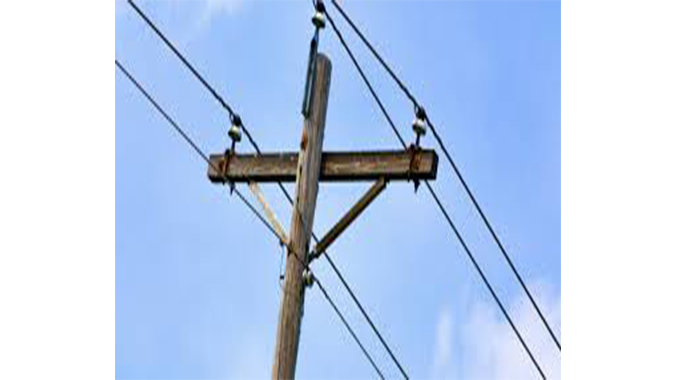
Leonard Ncube, Victoria Falls Reporter
ABOUT 90 percent of wire snares used by poachers to trap wildlife are copper wires stolen from idle TelOne telephone lines.
This came out during a tour of Forestry Commission concessions in Hwange and Binga districts last week where environmentalists and wildlife conservationists called for removal of the idle telephone lines countrywide to reduce poaching.
The Forestry Commission said it had escalated the issue with TelOne management and hoped action will be taken soon.
There used to be some TelOne (formerly Postal and Telecommunication) overhead lines in all parts of the country and most of them have been vandalised or cut by thieves who use the pieces of copper wire to trap animals.
The Forestry Commission which is courting investors, has partnered Motsamai Safari Lodges, Wildlife Encounter, Wild is Life, Amalinda Safaris, Sable Sands, Elephant Eye and Jimba Safaris Zimbabwe in Hwange and Binga districts to improve conservation activities.
The partners who include hunters, wildlife activists and safari operators whose concessions are mostly bordering communities, have bemoaned prevalence of poaching cases using copper wire snares.
They have called on the Government to strengthen wildlife conservation laws, saying the legislation is lenient to poachers hence the prevalence of poaching and human-wildlife conflict.
Zimbabwe boasts of a variety of wildlife species in protected sanctuaries, with some of the animals on the risk of extinction.
Government has however, since begun a process to review the 1975 Parks and Wildlife Act (Chapter 20:14) to ensure it speaks to the economic development needs of the country and meets international best practice.
Conservationists want Government to speed up the law amendment process and introduce stiffer penalties for wildlife and environment offenders.
Jimba Safaris owner Mr Wayne Dietrechsen said the rate of poaching in Sijalila Forest in Binga where he operates is very high.
“The rate of poaching is very high and it is damaging our forests and wildlife. We had a month-long operation comprising ourselves, police and Forestry Commission rangers to remove animal traps in the bush and managed to retrieve 724 wire snares in 30 days.
“About 90 percent of snares that are used by poachers are copper wires from telephone lines. TelOne should remove all these telephone lines that are lying unused because poachers are stealing these wires to trap animals. We also feel that Zimbabwean laws are too lenient and we have not reviewed fines for poaching for a long time. Some of the fines no longer make economic sense,” said Mr Dietrechsen.
No arrests were made in Sijalila during the operation between August and September.
“These are cases we know about. There are many snares in some areas we haven’t reached hence we are planning to do another operation,” said Mr Dietrechsen while briefing Environment, Climate, Tourism and Hospitality Industry Minister Nqobizitha Mangaliso Ndlovu.
Minister Ndlovu said the tour was part of a consultation process to gather all concerned people’s views towards crafting of a policy that will address issues of concern.
Poachers use different kinds of traps including wires, commonly known as Class One snares, fibre and many others depending on the type of animal targeted.
Amalinda Safaris director Mr Cedric Wilde operating in Ngamo Safaris in Dete called on Government to be strict in preventing encroachment into protected areas by villagers.
The Forestry Commission has also come up with a Spatial Monitoring And Report Tool (Smart) which was piloted in Ngamo and Sikumi forests to monitor poaching activities in protected forest areas.
Smart which has been in use since 2012 helps in mapping, planning, distribution of resources and identifying poaching hotspots according to Forestry Commission.
Forestry Commission managing director Mr Abednico Marufu said poaching is an area of concern and implored communities to actively participate in conservation initiatives.
“We are looking for more partnerships to be able to sustainably manage our forests and wildlife. What is worrying is the increasing cases of poaching using snares made from TelOne copper wires. This is an issue we have raised with responsible authorities at the parastatal and we hope they will respond. We need policies that look at community participation so that they are involved in the system and understand that they must protect the environment, forests and wildlife,” he said. — @ncubeleon
